
The Enchanting Gauja River: Latvia's Natural Gem
The Gauja River, winding its way through the heart of Latvia, is a haven for nature lovers and adventure seekers alike. This picturesque river stretches over 450 kilometers, flowing through lush forests, charming towns, and ancient castles, creating a landscape that is both serene and captivating. One of the highlights of the Gauja River is the Gauja National Park, the largest and oldest national park in Latvia. Here, visitors can explore a variety of outdoor activities such as hiking, canoeing, and cycling, all while being surrounded by breathtaking scenery. The park is also home to a rich diversity of wildlife, making it an ideal spot for birdwatching and nature photography. History enthusiasts will be delighted by the numerous medieval castles and manor houses that dot the riverbanks. The Sigulda Castle and Turaida Museum Reserve are must-visit sites, offering a glimpse into Latvia's storied past. Additionally, the river's surrounding area is peppered with charming towns and villages, each offering a unique glimpse into Latvian culture and traditions. Whether you're seeking adventure, tranquility, or a bit of both, the Gauja River offers an unforgettable experience. Its natural beauty and rich history make it a standout destination in Latvia, perfect for tourists looking to immerse themselves in the country's stunning landscapes and cultural heritage.
Local tips in Gauja River
- Visit in late spring or early autumn for the best weather and fewer crowds.
- Rent a canoe for a peaceful journey down the river and enjoy the stunning landscapes.
- Wear comfortable hiking shoes; many trails can be uneven and steep.
- Don't miss the medieval castles; they offer fascinating insights into Latvian history.
- Bring binoculars for birdwatching; the national park is home to many rare species.
- Check local events and festivals; they offer a unique cultural experience.
- Stay in a guesthouse or farmhouse for an authentic Latvian experience.
The Enchanting Gauja River: Latvia's Natural Gem
The Gauja River, winding its way through the heart of Latvia, is a haven for nature lovers and adventure seekers alike. This picturesque river stretches over 450 kilometers, flowing through lush forests, charming towns, and ancient castles, creating a landscape that is both serene and captivating. One of the highlights of the Gauja River is the Gauja National Park, the largest and oldest national park in Latvia. Here, visitors can explore a variety of outdoor activities such as hiking, canoeing, and cycling, all while being surrounded by breathtaking scenery. The park is also home to a rich diversity of wildlife, making it an ideal spot for birdwatching and nature photography. History enthusiasts will be delighted by the numerous medieval castles and manor houses that dot the riverbanks. The Sigulda Castle and Turaida Museum Reserve are must-visit sites, offering a glimpse into Latvia's storied past. Additionally, the river's surrounding area is peppered with charming towns and villages, each offering a unique glimpse into Latvian culture and traditions. Whether you're seeking adventure, tranquility, or a bit of both, the Gauja River offers an unforgettable experience. Its natural beauty and rich history make it a standout destination in Latvia, perfect for tourists looking to immerse themselves in the country's stunning landscapes and cultural heritage.
When is the best time to go to Gauja River?
Iconic landmarks you can’t miss
Gauja National Park
Explore Latvia's natural and historical heartland: Gauja National Park, where stunning landscapes meet medieval castles and outdoor adventures.
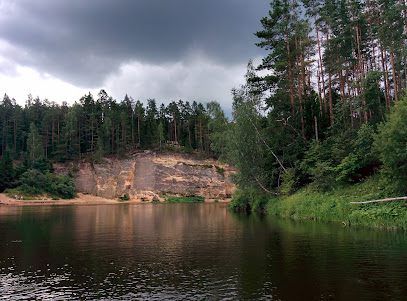
Līgatne Nature Trails
Discover Latvia's wildlife in a natural setting at Līgatne Nature Trails, offering scenic hikes and animal encounters in Gauja National Park.
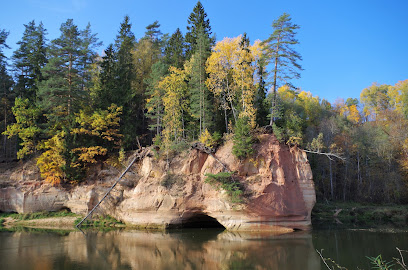
Rāmkalni Atpūtas parka BISTRO
Enjoy traditional Latvian cuisine at Rāmkalni Bistro, located within the Rāmkalni Atpūtas Parks, offering a cozy dining experience after outdoor adventures.
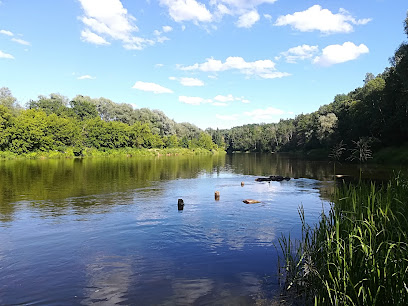
Svētku laukums
Experience breathtaking Gauja valley views and community spirit at Sigulda's central gathering place, Svētku Laukums.
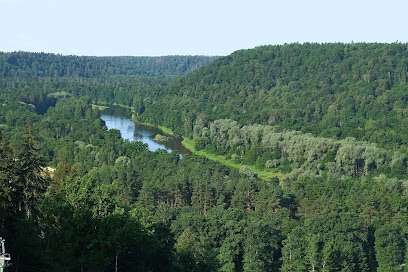
Gauja
Experience a taste of Soviet-era nostalgia with traditional Latvian cuisine at Gauja, a unique restaurant in Riga's Central District.
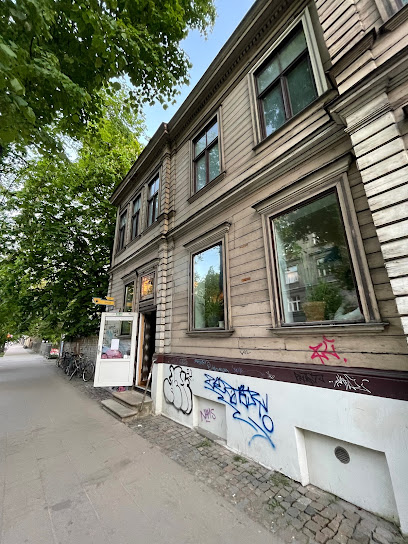
Cirulisi Nature Trails
Discover Latvia's natural beauty: Explore scenic trails, caves, and cliffs in the heart of Gauja National Park near Cēsis.
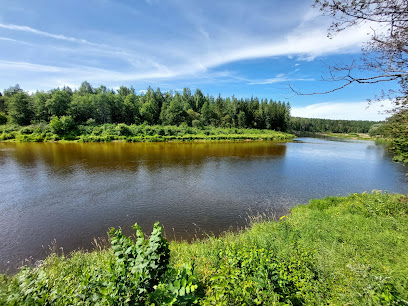
Vienkoču parks
Discover Latvian woodworking traditions and natural beauty at Vienkoču Park, a unique open-air museum in the Gauja National Park.
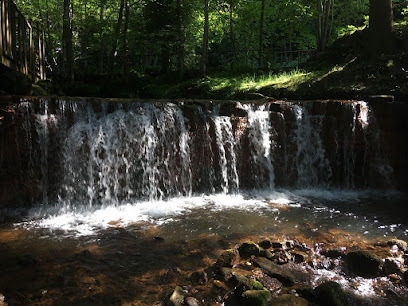
Raunas staburags
Discover Raunas Staburags: Latvia's unique freshwater limestone cliff, a natural wonder steeped in legend and geological history.
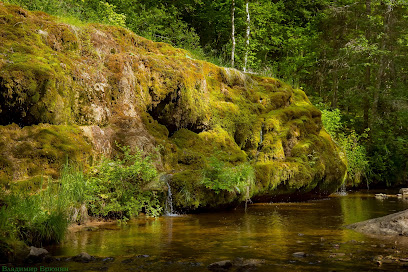
Kazu krāces
A scenic park in Valmiera featuring human-made rapids on the Gauja River, perfect for a relaxing escape.
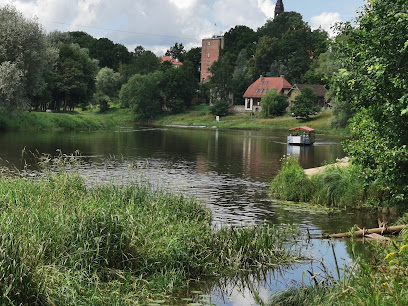
Karlamuiza Country Hotel
Experience tranquility and Latvian heritage at Karlamuiza Country Hotel, nestled in the heart of Gauja National Park.

Gauja River Steep banks
Discover breathtaking views and serene trails along the Gauja River Steep Banks in Valmiera, a perfect escape into Latvia's natural beauty.
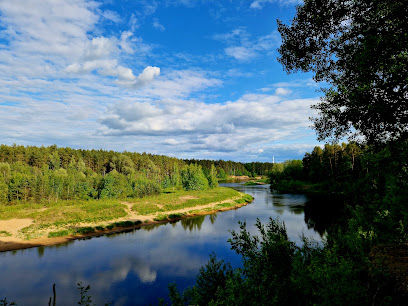
Camping Žagarkalns, Boat rental
Riverside camping near Cēsis with boat rentals, nature trails, and family-friendly activities on the scenic Gauja River.
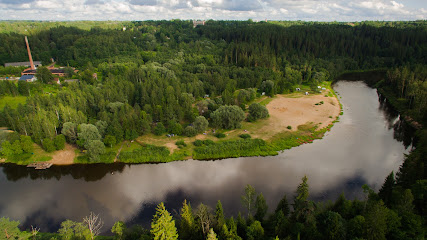
Cirgalu tornis
Ascend to breathtaking views of the Gauja River valley from this modern observation tower in the heart of Latvia's protected Ziemeļgauja landscape.
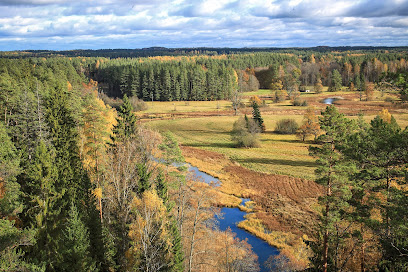
Mārkulīči
Experience Latvian nature at its finest with shooting sports, river adventures, and relaxing overnight stays in scenic Straupe Parish.
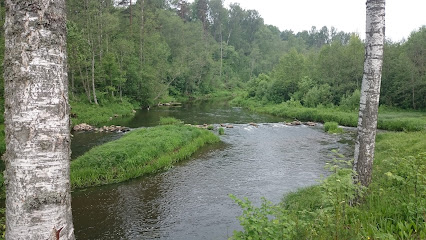
Pedestrian bridge across Gauja River
Cross the Gauja River on this pedestrian bridge for scenic views of the valley and Devil's Cave in Sigulda, Latvia.
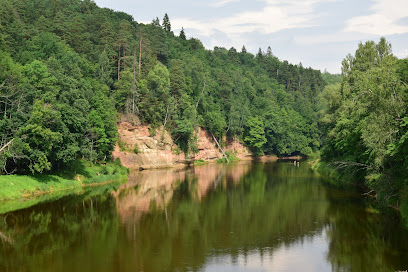
Unmissable attractions to see
Gauja National Park
Explore Gauja National Park, Latvia's natural treasure, featuring stunning landscapes, rich history, and outdoor adventures for every traveler.
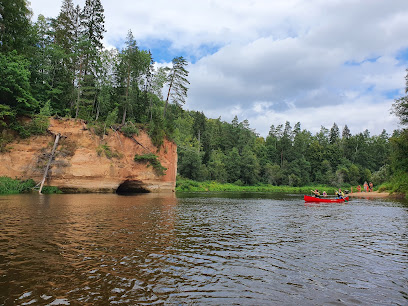
Turaida Castle
Experience the rich history and breathtaking views at Turaida Castle, a majestic medieval fortress in the heart of Latvia's picturesque Sigulda region.
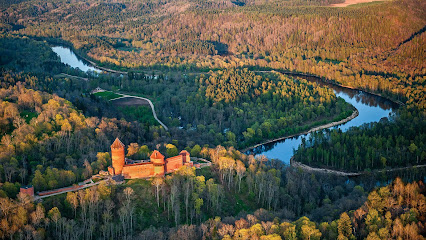
Castle Of The Livonian Order In Sigulda
Experience the enchanting Castle of the Livonian Order in Sigulda, a historical gem surrounded by the stunning landscapes of Gauja National Park.
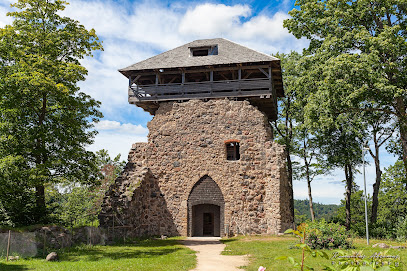
Tarzāns
Experience the ultimate adventure at Tarzāns in Sigulda, where exhilaration meets nature's beauty in the heart of Latvia.
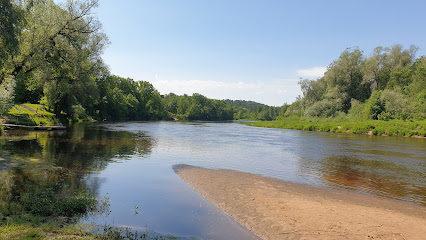
Gutman's Cave
Explore Gutman's Cave, a captivating natural wonder in Latvia's Gauja National Park, teeming with geological marvels and rich folklore.
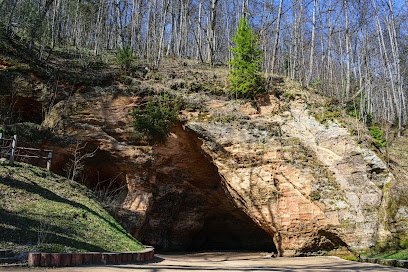
Turaida Museum Reserve
Explore Turaida Museum Reserve, a treasure trove of Latvian history and stunning landscapes in the heart of Gauja National Park.
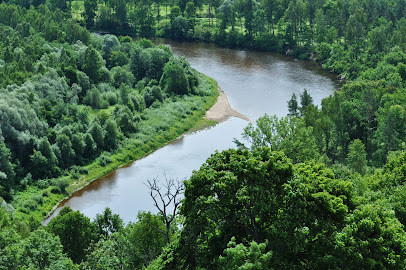
Līgatne Nature Trails
Explore the stunning Līgatne Nature Trails, a premier park in Latvia, showcasing breathtaking landscapes and diverse wildlife for nature lovers.
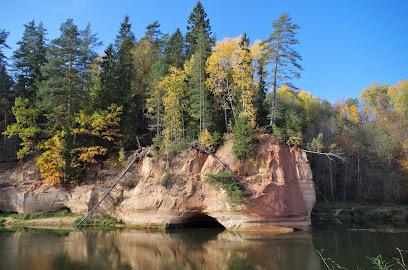
Līgatne Nature Trails
Experience the breathtaking landscapes and rich biodiversity of Līgatne Nature Trails, a national park paradise in Latvia.
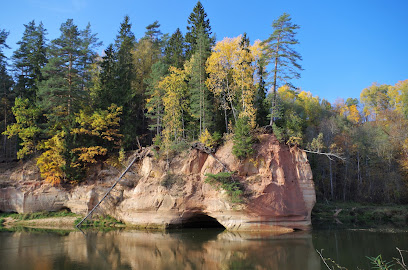
Rāmkalni
Discover Rāmkalni: A breathtaking tourist attraction offering adventure, relaxation, and stunning views of the Gauja River in Latvia's Inčukalna region.
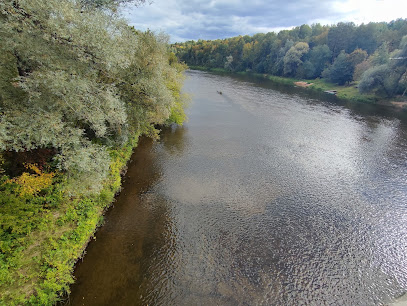
Sajūtu parks
Discover the thrills of Sajūtu Parks in Valmiera, where adventure meets nature in an unforgettable experience for all visitors.
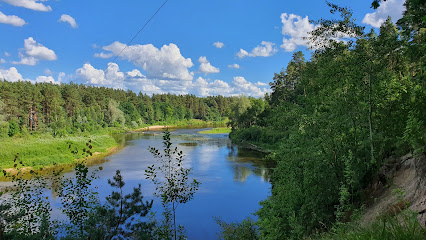
Sietiņiezis
Discover the breathtaking beauty of Sietiņiezis, a tranquil escape featuring stunning nature trails along the Gauja River in Latvia's Vaidava Parish.
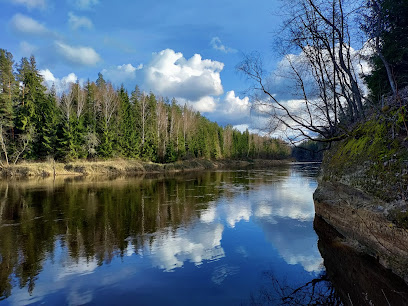
Svētku laukums
Explore the serene beauty of Svētku laukums, a picturesque park in Sigulda offering stunning views of the Gauja River and a perfect spot for relaxation.
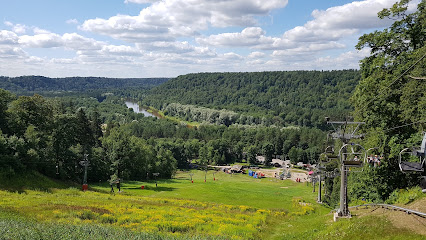
Ērgļu klintis
Discover the stunning Ērgļu Klintis in Latvia's Gauja National Park—where breathtaking cliffs meet tranquil river views, perfect for nature lovers.
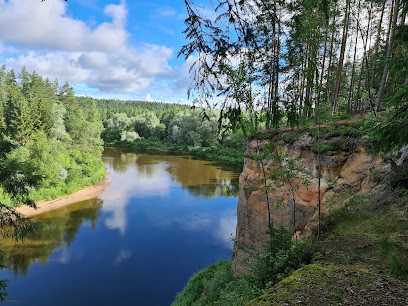
Lustūzis
Discover the charm of Lūzziņi, a picturesque town in Latvia, rich in history and natural beauty, perfect for your next travel adventure.
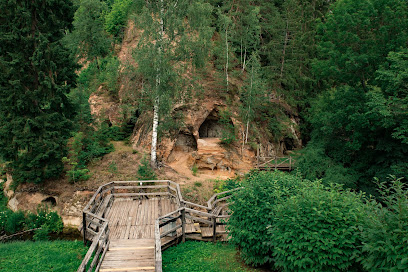
Devil's Oven
Explore the enchanting Devil's Oven in Latvia, a stunning limestone cave surrounded by lush forests and rich local legends, perfect for nature lovers.
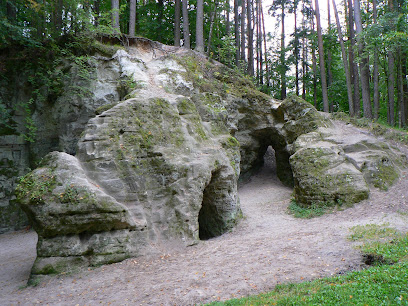
Essential places to dine
Rozengrāls (Vinarium civitatis rigensis)
Dine in medieval splendor at Rozengrāls - Riga's premier destination for authentic Latvian cuisine in an enchanting atmosphere.
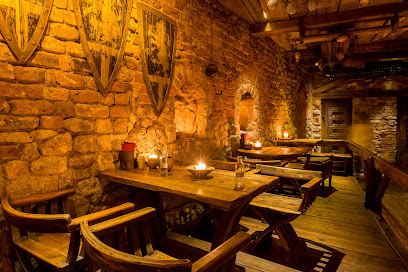
Rāmkalni
Explore Rāmkalni: A top Latvian amusement park with skiing, biking, boating & dining amidst breathtaking nature.
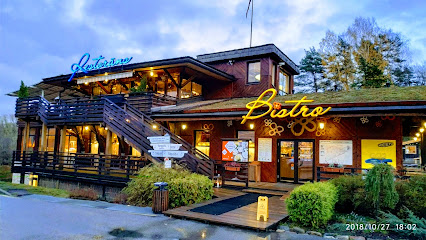
Goldingen Room
Experience authentic Latvian cuisine at Goldingen Room in Kuldīga – where local flavors meet modern elegance.
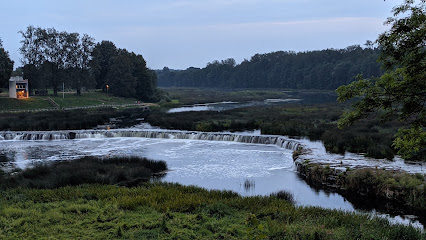
Garage
Experience exquisite dining and vibrant nightlife at Garage Bar & Restaurant in Riga's Central District.
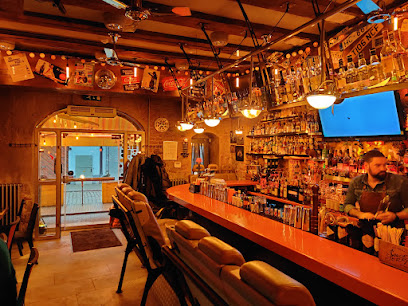
Rāmkalni Atpūtas parka BISTRO
Experience exquisite local cuisine amidst breathtaking landscapes at Rāmkalni Atpūtas parka BISTRO.
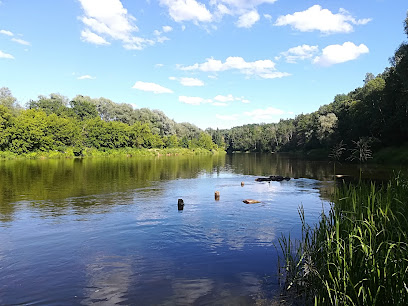
Lidojošā varde
Experience authentic Latvian cuisine at Lidojošā Varde in Riga - where tradition meets modernity in every dish.
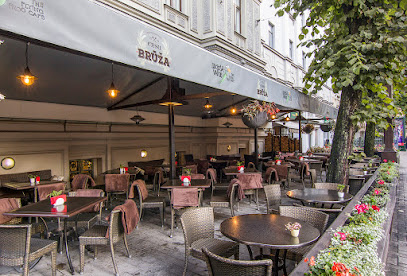
Kungu rija, restorāns
Experience authentic Latvian cuisine at Kungu Rija in Turaida - where tradition meets taste in a charming setting.
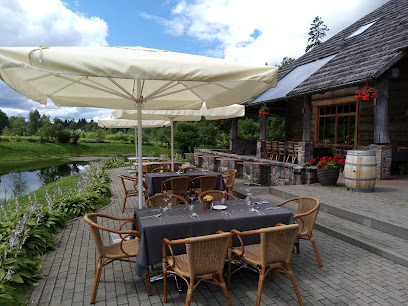
Domini Canes
Experience exquisite European cuisine at Domini Canes - Riga's premier destination for steak lovers and food enthusiasts.
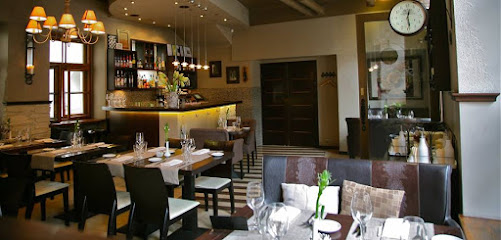
Zivju lete
Experience authentic Latvian seafood at Zivju Lete, where fresh ingredients meet traditional recipes in a cozy setting.
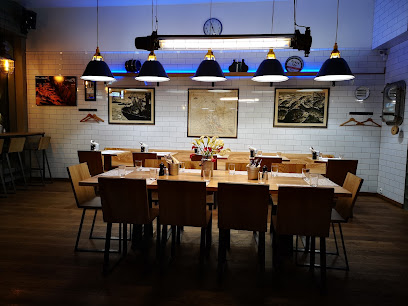
Mio
Discover Mio in Riga - where exceptional dining meets warm hospitality in Latvia's vibrant capital.
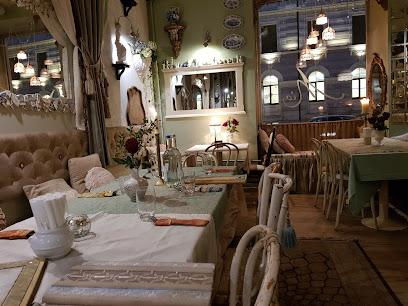
Gauja
Discover authentic Latvian flavors at Gauja, a cozy restaurant in Riga's Central District offering delicious meals made with fresh local ingredients.
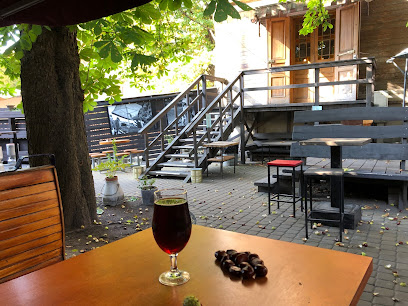
Vistiņas Karbonādes Steiki, restorāns
Experience authentic Latvian cuisine with exquisite steaks at Vistiņas Karbonādes Steiki in Baltezers – where flavor meets tradition.
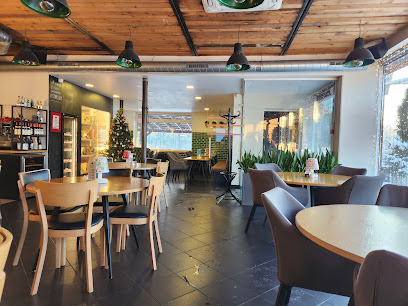
Viesnīca un restorāns Aparjods
Discover culinary delights and cozy accommodations at Viesnīca un restorāns Aparjods in scenic Sigulda, Latvia.
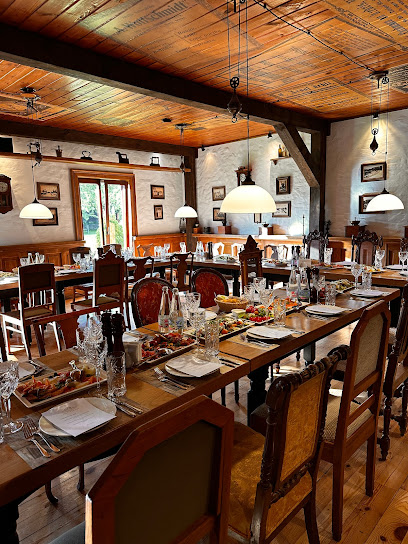
Aqua Luna
Discover exquisite dining at Aqua Luna in Riga—where stunning river views meet culinary artistry for an unforgettable experience.
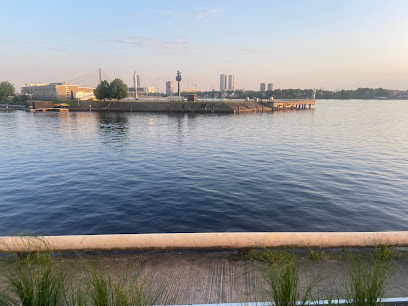
The Good Father
Experience authentic Latvian cuisine at The Good Father in Riga - where traditional flavors meet modern culinary artistry.
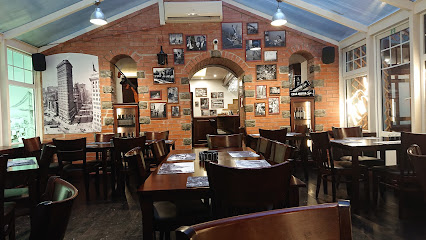
Markets, malls and hidden boutiques
AKROPOLE Rīga
Discover the ultimate shopping experience at AKROPOLE Rīga, where fashion, dining, and entertainment come together in a vibrant setting.
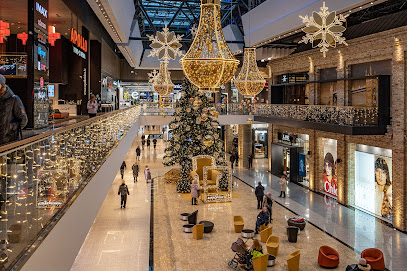
Akropole Alfa, iepirkšanās centrs
Discover Akropole Alfa in Riga, a bustling shopping mall offering a blend of retail, dining, and entertainment for an unforgettable experience.
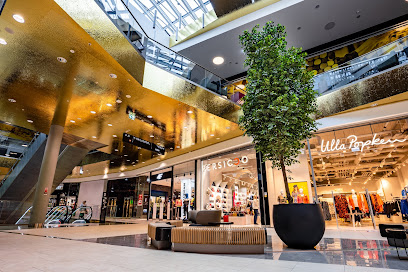
Riga Plaza shopping center
Experience the best of shopping, dining, and entertainment at Riga Plaza Shopping Center, the ultimate destination for visitors in Riga, Latvia.
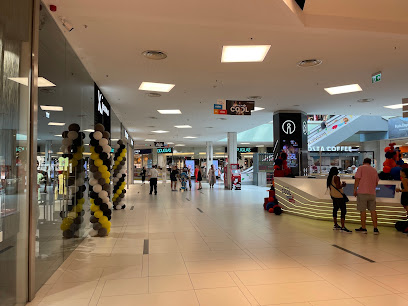
Gallery Centre, Shopping mall
Discover Riga's premier shopping destination at Gallery Centre, where local charm meets international flair in a modern setting.
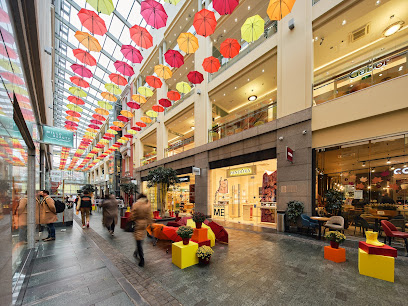
Gauja National Park
Explore the breathtaking landscapes and rich biodiversity of Gauja National Park, the largest national park in Latvia, perfect for nature lovers and adventure seekers.
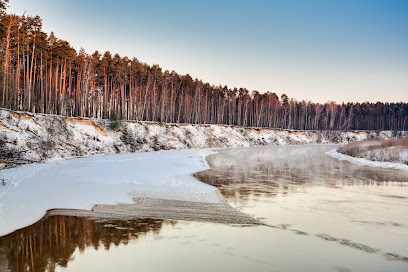
Galleria Riga
Explore Galleria Riga: A vibrant shopping mall in the heart of Riga, where local charm meets international flair in an unforgettable experience.
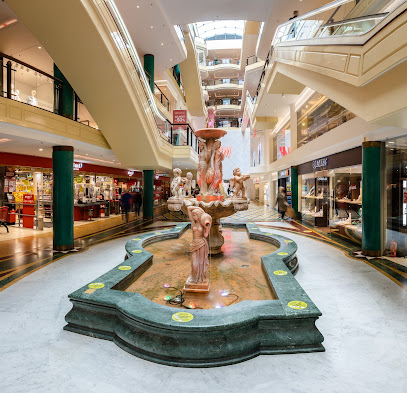
Rāmkalni
Experience adventure and serenity at Rāmkalni, Latvia's premier amusement park featuring skiing, biking, and more in a breathtaking natural setting.
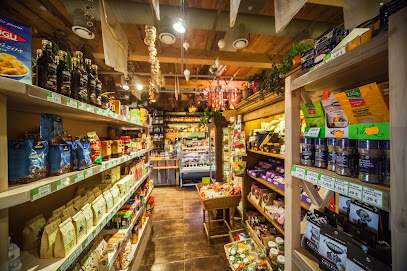
Gauja
Experience the flavors of Latvia at Gauja, a charming restaurant in Riga offering a delightful menu of local and international cuisine.
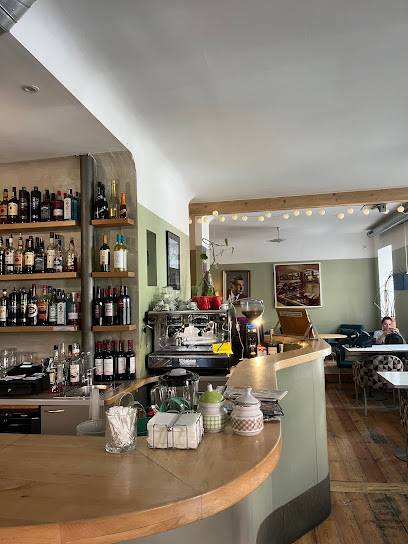
Cirulisi Nature Trails
Explore Cirulisi Nature Trails: A breathtaking national park in Cēsis, Latvia, perfect for hiking, nature walks, and serene escapes.
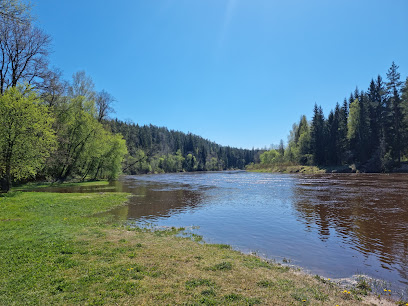
Četras Zoles
Discover the perfect pair of shoes at Četras Zoles, a stylish shoe store in the heart of Riga's vibrant Central District.

Robert’s Books
Discover a literary oasis in Riga at Robert's Books, where the love of reading comes alive in a cozy and inviting atmosphere.
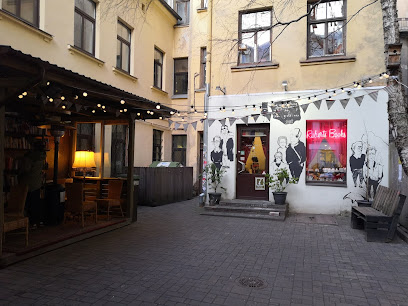
Baltu rotas
Explore exquisite handcrafted jewelry at Baltu Rotas in Riga, a treasure trove of unique designs reflecting Latvian culture and artistry.
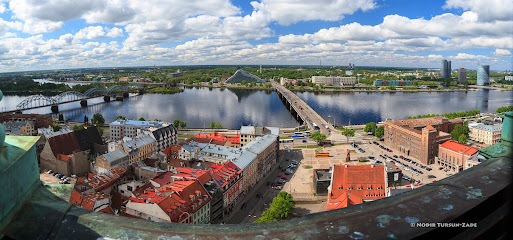
Alberta pīpes
Discover Alberta Pīpes in Riga, a unique cafe blending excellent coffee, delightful snacks, and an inviting hookah atmosphere. A must-visit for relaxation and culture.
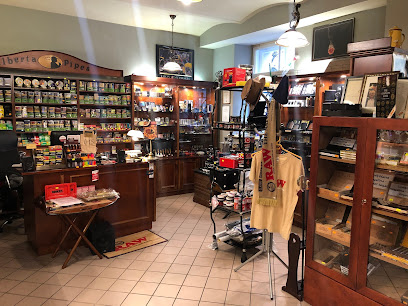
Gauja River Steep banks
Experience the natural beauty of Gauja River Steep Banks in Valmiera, where stunning landscapes and serene trails await every nature lover.
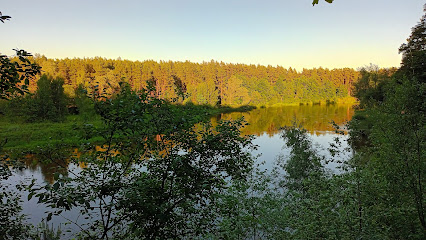
Amber Queen
Discover the beauty of amber at Amber Queen, a unique jewelry store and museum in the heart of Riga, showcasing exquisite craftsmanship and rich history.
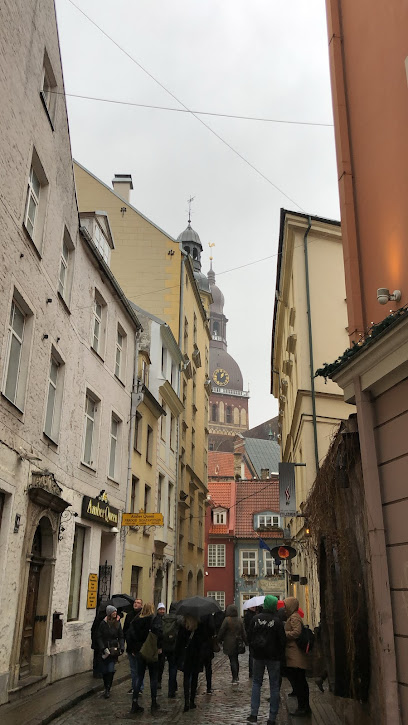
Essential bars & hidden hideouts
Skyline bar
Experience breathtaking views and exquisite cocktails at Skyline Bar, the ultimate rooftop destination in Riga.
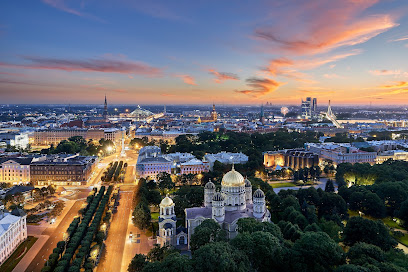
The Armoury Bar
Experience the charm of Riga at The Armoury Bar, where history meets hospitality in a lively pub atmosphere.
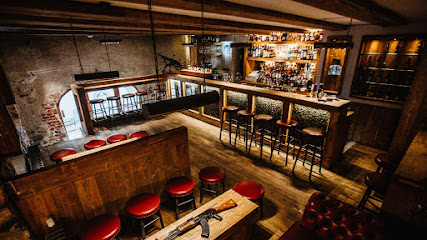
Pie Brāļa
Experience authentic Latvian cuisine at Pie Brāļa, a charming pub and restaurant in Sigulda, perfect for every culinary adventure.
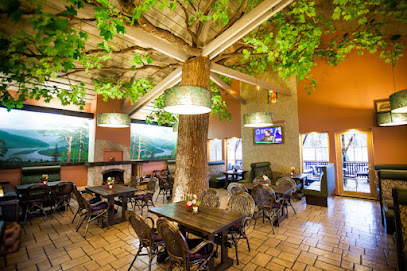
Alus bārs
Discover the heart of Latvian brewing at Alus bārs, where local beers and hearty dishes come together in a cozy setting in Valmiera.

at Jančuks
Discover the essence of Latvian culture at at Jančuks, a charming pub in Līgatne offering local drinks and a warm atmosphere.
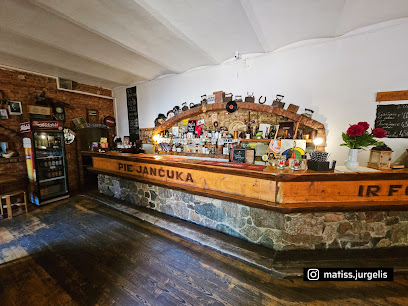
Secret event
Experience the vibrant nightlife of Riga at Secret Event Bar, where great drinks and live music create unforgettable memories.
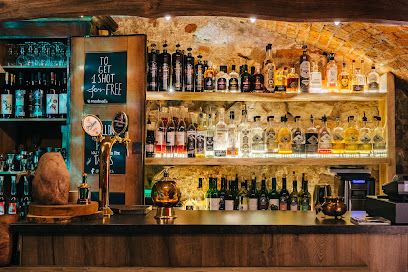
Brenguļu alus sēta
Experience local brews and traditional Latvian hospitality at Brenguļu Alus Sēta, a charming beer garden in Brenguļi parish.
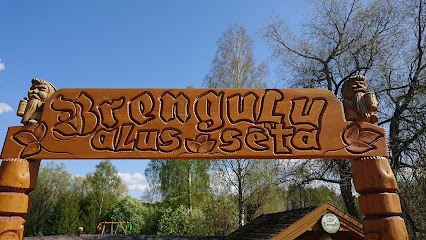
Distillers Republic -Local Craft Distillery & Bar
Discover the essence of Riga's nightlife at Distillers Republic, a craft distillery and bar serving unique spirits and delicious bites.
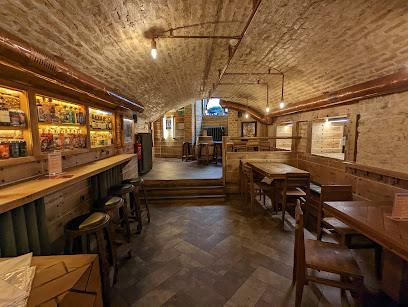
Trimpus Craft Brewery - Taproom
Experience the taste of local craft beers in the cozy atmosphere of Trimpus Craft Brewery - Taproom, a must-visit in Cēsis.
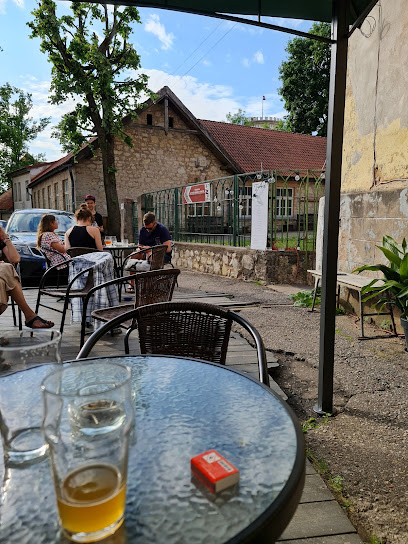
Ligatne wine cellar
Explore the Ligatne Wine Cellar for a taste of Latvia's finest wines in a picturesque setting that captivates every visitor.
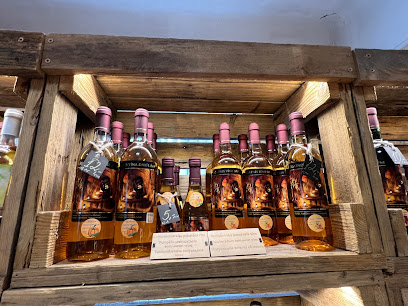
Joker Ltd , SIA, Spelu zale
Discover Joker Ltd in Valmiera, where thrilling gaming and a vibrant bar atmosphere come together for an unforgettable experience.
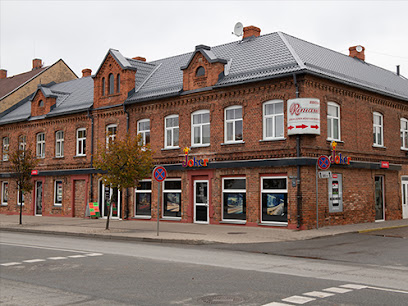
Lakstīgalas
Discover the charm of Lakstīgalas, a serene lounge in Raiskuma Parish offering a unique blend of relaxation, local culture, and nature's beauty.
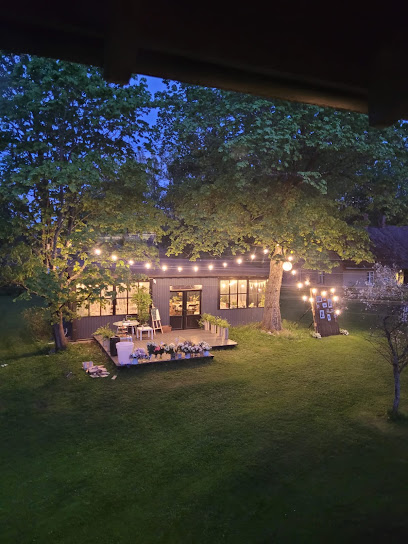
Heineken Sport Bar
Experience the ultimate sports atmosphere at Heineken Sport Bar in Kadaga, where fans unite over great drinks and thrilling games.
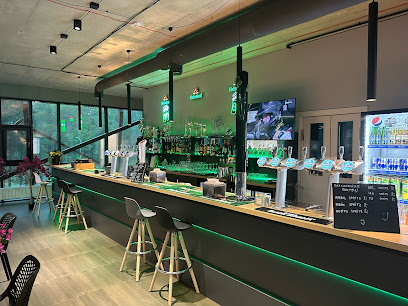
Dzērieni bez uzcenojuma
Experience the essence of Latvian hospitality at Dzērieni bez uzcenojuma, Valmiera's beloved bar with local drinks and cozy vibes.
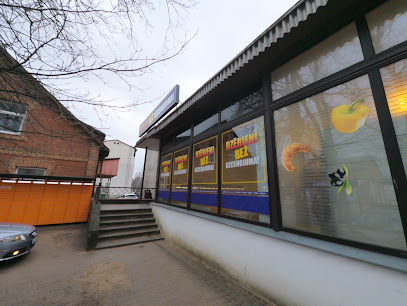
Local Phrases about Gauja River
-
- HelloSveiki
[Sveh-kee] - GoodbyeUz redzēšanos
[Ooz rehd-zeh-shah-nohs] - YesJā
[Yah] - NoNē
[Neh] - Please/You're welcomeLūdzu
[Loo-dzoo] - Thank youPaldies
[Pahl-dyehs] - Excuse me/SorryAtvainojiet
[Aht-vai-noh-yet] - How are you?Kā jums klājas?
[Kah yooms klah-yahs] - Fine. And you?Labi. Un jums?
[Lah-bee Oon yooms] - Do you speak English?Vai jūs runājat angļu valodā?
[Vai yoos roo-nah-yat ahng-loo vah-loh-dah] - I don't understandEs nesaprotu
[Ehs ne-sah-proh-too]
- HelloSveiki
-
- I'd like to see the menu, pleaseEs vēlētos redzēt ēdienkarti, lūdzu
[Ehs vee-ley-tohs rehd-zet eh-dyehn-kahr-tee, loo-dzoo] - I don't eat meatEs nemāku ēst gaļu
[Ehs neh-mah-koo ehst gah-lyoo] - Cheers!Priekā!
[Pryeh-kah] - I would like to pay, pleaseEs vēlētos samaksāt, lūdzu
[Ehs vee-ley-tohs sah-mah-ksaht, loo-dzoo]
- I'd like to see the menu, pleaseEs vēlētos redzēt ēdienkarti, lūdzu
-
- Help!Palīdzība!
[Pah-lee-dzee-bah] - Go away!Iziesiet prom!
[Ee-zee-seet prohm] - Call the Police!Zvaniet policiju!
[Zvah-nee-et poh-lee-tsee-yoo] - Call a doctor!Zvaniet ārstu!
[Zvah-nee-et ahr-stoo] - I'm lostEs esmu pazudis
[Ehs ehs-moo pah-zoo-dees] - I'm illEs esmu slims
[Ehs ehs-moo sleems]
- Help!Palīdzība!
-
- I'd like to buy...Es vēlētos pirkt...
[Ehs vee-ley-tohs peerkt] - I'm just lookingEs tikai skatos
[Ehs tee-kai skah-tohs] - How much is it?Cik tas maksā?
[Tsik tahs mahk-saht] - That's too expensiveTas ir pārāk dārgi
[Tahs eer pah-raak darh-gee] - Can you lower the price?Vai jūs varat pazemināt cenu?
[Vai yoos vah-raht pah-zeh-meh-naht tseh-noo]
- I'd like to buy...Es vēlētos pirkt...
-
- What time is it?Cik ir pulkstenis?
[Tsik eer poolk-steh-nees] - It's one o'clockIr viens pulkstenis
[Eer vyens poolk-steh-nees] - Half past (10)Pus divpadsmit
[Poos deev-pahds-meet] - MorningRīts
[Reets] - AfternoonPēcpusdiena
[Pehch-poos-dyeh-nah] - EveningVakars
[Vah-kahrs] - YesterdayVakar
[Vah-kahr] - TodayŠodien
[Shoh-dyehn] - TomorrowRīt
[Reet] - 1Viens
[Vyens] - 2Divi
[Dee-vee] - 3Trīs
[Trees] - 4Četri
[Cheh-tree] - 5Pieci
[Pyeht-see] - 6Seši
[Seh-shi] - 7Septiņi
[Sehp-tee-nee] - 8Astoņi
[Ahs-toh-nee] - 9Devīti
[Deh-vee-tee] - 10Desmit
[Dehs-meet]
- What time is it?Cik ir pulkstenis?
-
- Where's a/the...?Kur ir ...?
[Koor eer] - What's the address?Kāda ir adrese?
[Kah-dah eer ah-dreh-seh] - Can you show me (on the map)?Vai jūs varat mani parādīt (uz kartes)?
[Vai yoos vah-raht mah-nee pah-rah-deet oos kahr-tehs] - When's the next (bus)?Kad ir nākamais (autobuss)?
[Kahd eer nah-kah-mah-ees] - A ticket (to ....)Biļete (uz ....)
[Bee-lyeh-teh oos]
- Where's a/the...?Kur ir ...?
History of Gauja River
-
The Gauja River region has been inhabited since prehistoric times. Archaeological findings indicate that the Livonian tribes settled along the Gauja River as early as the 2nd millennium BCE. These early inhabitants were known for their skills in fishing, hunting, and trading, leveraging the river as a crucial route for commerce and communication.
-
During the Middle Ages, the Gauja River became a strategic frontier for various powers. The Livonian Order, a branch of the Teutonic Knights, built several formidable castles along the river. The most notable among these are Turaida Castle, Sigulda Castle, and Cēsis Castle. These fortifications played pivotal roles in the defense and administration of the region throughout the 13th and 14th centuries.
-
In the 13th and 14th centuries, the Gauja River was integral to the Hanseatic League, a powerful economic and defensive alliance of merchant guilds and market towns in Northwestern and Central Europe. The river facilitated the movement of goods such as timber, grain, and furs, linking Latvia with other key trading hubs across the Baltic Sea.
-
During the late 16th and early 17th centuries, the region surrounding the Gauja River experienced significant influence from both the Swedish Empire and the Polish-Lithuanian Commonwealth. These powers vied for control over the territory, leading to numerous battles and skirmishes. The period saw the construction and destruction of fortifications, as well as the integration of new cultural influences.
-
The 19th century brought a renewed interest in the natural beauty of the Gauja River Valley, spurred by the Romantic movement. Artists, poets, and writers were drawn to the region's picturesque landscapes and historical ruins. This period marked the beginning of tourism in the Gauja River area, with spa towns like Sigulda gaining popularity among visitors seeking both recreation and inspiration.
-
During the Soviet occupation of Latvia (1940-1991), the Gauja River area was recognized for its ecological and cultural significance. In 1973, the Gauja National Park was established, becoming the first and largest national park in Latvia. The park aimed to preserve the natural environment, historical sites, and promote scientific research and eco-tourism.
-
Today, the Gauja River remains a vital part of Latvia's cultural and natural heritage. The river is a popular destination for outdoor activities such as kayaking, hiking, and cycling. The region is celebrated for its vibrant festivals, traditional crafts, and the preservation of historical sites, continuing to attract visitors from around the world.
Gauja River Essentials
-
The Gauja River is located in northeastern Latvia. The nearest international airport is Riga International Airport, approximately 90 kilometers away. From Riga, you can take a bus or a train to Sigulda, a popular entry point to the Gauja National Park and the river. The journey typically takes around 1.5 to 2 hours by road. Alternatively, you can rent a car for a more flexible travel experience.
-
Within the Gauja National Park area, several modes of transportation are available. Buses and trains connect the main towns including Sigulda, Cēsis, and Valmiera. Renting a car or a bicycle can be a convenient way to explore the park at your own pace. For an adventurous experience, consider canoeing or kayaking down the Gauja River itself.
-
The official currency in Latvia is the Euro (EUR). Credit cards are widely accepted in most hotels, restaurants, and shops, but it is advisable to carry some cash, especially in smaller establishments and rural areas. ATMs are available in towns like Sigulda and Cēsis, so it's recommended to withdraw sufficient cash beforehand.
-
The Gauja River area is generally safe for tourists. However, standard precautions should be taken. Avoid walking alone late at night in secluded areas and keep an eye on your belongings in crowded places. There are no specific high-crime areas targeting tourists, but it is always best to stay vigilant and aware of your surroundings.
-
In case of emergency, dial 112 for immediate assistance, which connects you to police, fire, and medical services. Local police stations and medical facilities are available in towns like Sigulda and Cēsis. It is recommended to have travel insurance that covers medical emergencies. For minor health issues, there are pharmacies in the towns where you can purchase over-the-counter medications.
-
Fashion: Do dress in layers, as the weather can be unpredictable. Comfortable walking shoes are a must for exploring trails. Religion: Do respect local customs, especially when visiting churches or religious sites. Public Transport: Do be respectful and offer your seat to elderly passengers. Avoid eating or drinking on public transport. Greetings: Do greet people with a friendly 'Sveiki' (Hello). A handshake is also a common form of greeting. Eating & Drinking: Do try local specialties such as 'sklandrausis' (sweet carrot and potato tart) and 'rupjmaize' (rye bread). Don’t refuse hospitality, as it is considered impolite.
-
To experience the Gauja River like a local, take time to explore the local markets and chat with vendors who are often eager to share stories about the region. Visit the medieval castles in Sigulda and Cēsis for a deep dive into history. For an authentic experience, consider staying in a local guesthouse or farmstead. Don't miss the opportunity to hike the scenic trails and enjoy the breathtaking views of the river valley.
Trending Landmarks in Gauja River
-
Gauja National Park
-
Līgatne Nature Trails
-
Rāmkalni Atpūtas parka BISTRO
-
Svētku laukums
-
Gauja
-
Cirulisi Nature Trails
-
Vienkoču parks
-
Raunas staburags
-
Kazu krāces
-
Karlamuiza Country Hotel
-
Gauja River Steep banks
-
Camping Žagarkalns, Boat rental
-
Cirgalu tornis
-
Mārkulīči
-
Pedestrian bridge across Gauja River
Nearby Cities to Gauja River
-
Things To Do in Sigulda
-
Things To Do in Valga
-
Things To Do in Riga
-
Things To Do in Jurmala
-
Things To Do in Võru
-
Things To Do in Viljandi
-
Things To Do in Pärnu
-
Things To Do in Tartu
-
Things To Do in Paide
-
Things To Do in Talsi
-
Things To Do in Daugavpils
-
Things To Do in Rapla
-
Things To Do in Panevėžys
-
Things To Do in Kuressaare
-
Things To Do in Haapsalu











